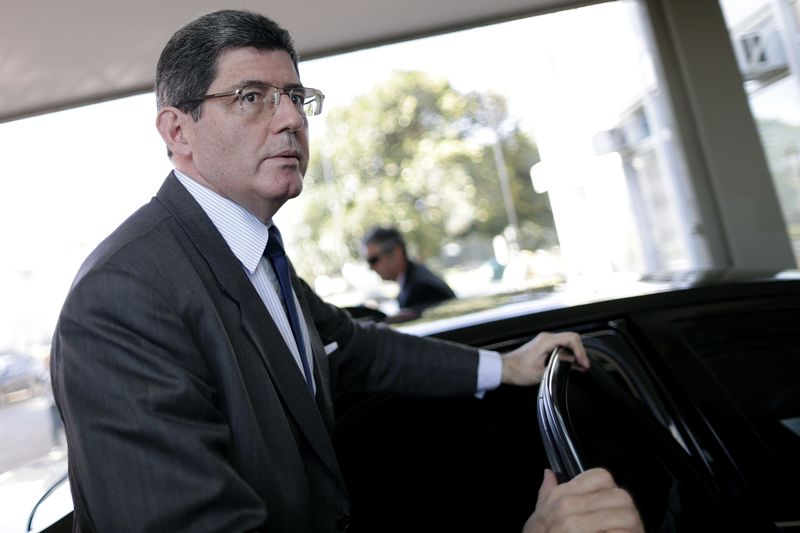By Nestor Rabello and Guillermo Parra-Bernal
BRASILIA/SAO PAULO (Reuters) - Brazil on Monday announced tax increases on fuel, imports and consumer loans aimed at raising 20.6 billion reais (5 billion pounds) in additional revenues this year, although some economists have warned the measures may boost inflation.
The plan is part of an effort to help balance budget accounts and revive investor confidence, Finance Minister Joaquim Levy said at a news conference. The taxes will help the government collect one-third of the savings it needs to meet debt-reduction goals for the year.
The tax hikes will also reverse fiscal incentives that had been implemented by Levy's predecessor at the Finance Ministry, Guido Mantega, whose policies had been widely criticized by the private sector.
"The main goal of these measures is to boost confidence in the economy," said Levy, who took office at the start of the year. "These measures, taken together, should improve confidence, encourage people to invest in Brazil and take risks."
Yet, the tax hikes are likely to stoke inflation, putting the 12-month trailing number potentially above the official target ceiling of 6.5 percent, and put the brakes on an already sluggish economy, analysts have said.
Levy, who said he is working on other measures to strengthen public finances, declined to say when he will announce potential cuts to this year's budget. Levy has also pledged to curb state intervention by scaling back subsidies to certain industries.
Credit agencies have threatened to cut Brazil's sovereign debt ratings if the government fails to arrest a surge in spending and gross debt.
The government will restore a fuel tax known as Cide on gasoline and diesel, with the former adding 0.22 reais per liter of gasoline and the latter 0.15 reais to diesel.
Brazil's state-run oil company Petrobras (SA:PETR4) said in a statement after Levy spoke that it would not lower wholesale fuel prices to shield end consumers from higher prices at the pump.
This also marks an about-face for the government of recently re-elected President Dilma Rousseff, which had previously lowered the fuel tax to zero to contain inflation.
The reinstatement of Cide should come as good news for Brazil's struggling ethanol industry, which said the elimination of the tax had made the biofuel less competitive at the pump against the petroleum-based counterpart.
The Finance Ministry also raised the IOF tax on personal loans to 3 percent from 1.5 percent previously, while increasing a Pis/Cofins social security tax on imports to 11.75 percent. The measures include a simplification of the tax structure for producers and wholesalers of cosmetic products.
Brazil's complex tax system is often blamed by investors as one of the main obstacles to faster economic growth.

Some of the measures will take effect early on Feb. 1, Levy said.